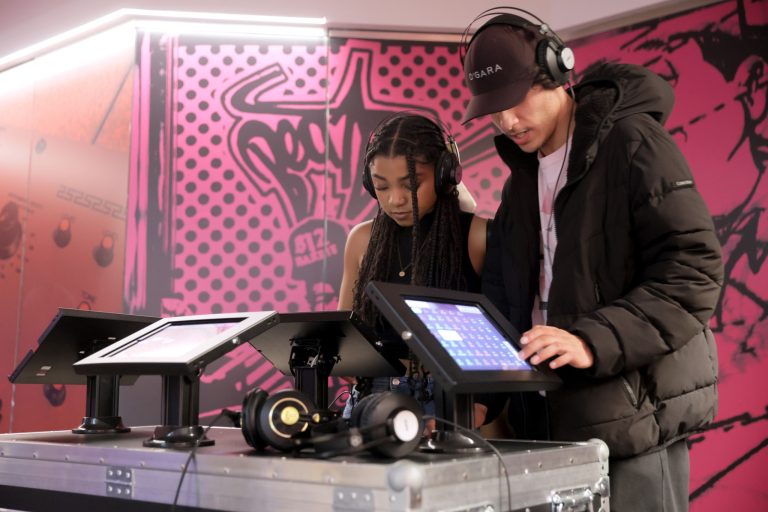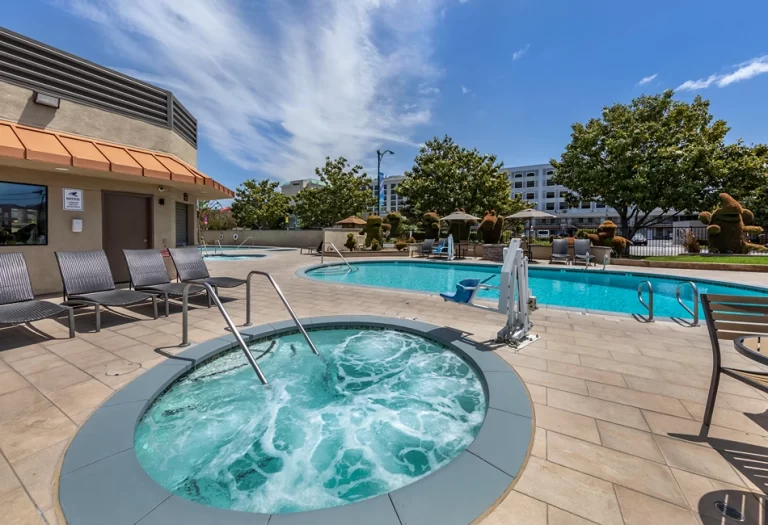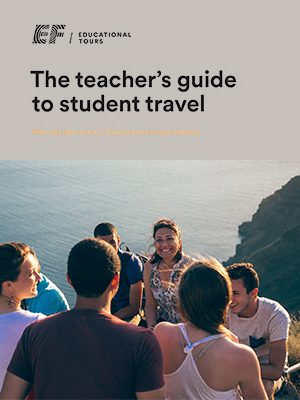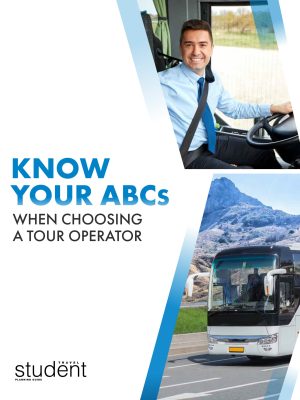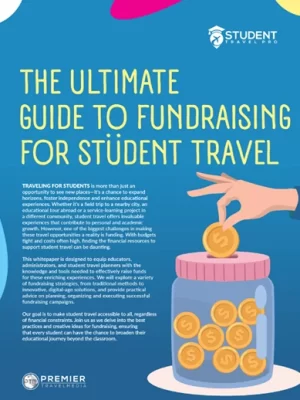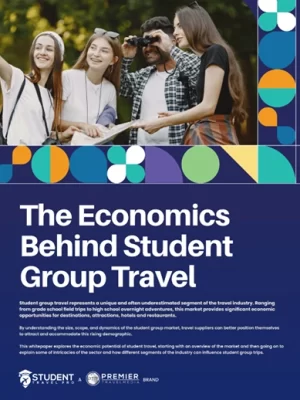When it comes time to guide your high schoolers through their college selection process, Boston presents a vibrant academic landscape perfect for packing in a number of campus tours. It seems as though everywhere you turn in Boston there is a college or university, all of various sizes and specialties. However, Boston is not just a hub for higher education but also a cultural and intellectual community that can truly enhance a student’s college experience. Organizing visits to Boston’s universities could be pivotal in helping your students find their perfect academic match.
This guide is crafted to assist in planning insightful and comprehensive tours of Boston’s top universities. We’ll explore how to maximize the value of your visits, ensuring your students are well-informed and inspired as they ponder their future.
Planning Your Visit
When arranging a tour of Boston’s universities for your junior or seniors, consider these tips to ensure a smooth and productive experience:
Scheduling Campus Tours and Information Sessions:
- Advance Planning: Most universities require you to book tours and information sessions in advance, particularly during busy seasons like late spring and early fall. Schedule these visits well ahead of time to secure your preferred dates.
- Group Arrangements: When booking, specify that you are arranging a visit for a group of high school students. Many universities offer special group tours that are more comprehensive and geared toward the interests and needs of prospective students.
Maximizing Visits to Multiple Campuses:
- Geographic Planning: Organize your itinerary by geographical proximity to minimize travel time between campuses. Boston’s public transportation system can be leveraged to travel around the city with ease.
- Diverse Experiences: Try to include a mix of large research universities and smaller colleges to give students a balanced view of the different types of institutions. Each type offers unique environments and opportunities.
What to Look for During Campus Tours
Campus tours are a cornerstone of the college decision-making process. Here are key aspects that you should encourage your students to focus on during their visits:
Academic Facilities:
- Libraries and Laboratories: Check out the resources available in libraries and the type of equipment in the science and technology labs.
- Classrooms and Lecture Halls: Observe the sizes and settings of classrooms. Do they provide the type of learning environment your students are looking for? How modern are the facilities?
- Research Opportunities: Inquire about undergraduate research opportunities and facilities, as these can be a significant part of a student’s academic growth.
Student Accommodation:
- Dorm Rooms: Visit at least one dorm room if possible. Get a feel for student living conditions and amenities. Many campus tours will also include a visit to a current student’s dorm room so everyone can get a feel for the living options.
- Dining Halls: Sample the food if you can, and observe the variety and quality of meals provided to students.
Student Services:
- Support Services: Look into the availability of tutoring, career counseling and psychological services.
- Clubs and Organizations: Learn about extracurricular opportunities. A vibrant community of clubs and organizations can greatly enhance the college experience and get students excited for their time on campus.
Campus Culture:
- General Atmosphere: Encourage students to get a sense of the campus vibe. Are people friendly? What’s the general pace of life? Boston offers a wonderful mix of downtown, urban campuses and more suburban, sprawling campuses.
- Events and Activities: Check bulletin boards or school calendars for events that might show what student life is really like.
- Safety: Consider the campus safety measures in place, such as emergency stations, campus escorts and the general safety of the surrounding area.
Encourage your students to prepare a list of questions to ask current students or admissions staff during their tours. This proactive approach will help them gather information and make well-informed decisions.
Preparation Before the Visit
To maximize the effectiveness of campus visits, thorough preparation is key. Here’s how you can prepare your students to make the most out of their college tours:
Research:
- Background Information: Students should research each university’s history, key academic programs and any notable alumni.
- Specific Programs of Interest: If students have specific academic interests, they should look into relevant departments and potential majors.
Setting Expectations:
- Goals for Each Visit: Help students set clear goals for what they want to learn from each visit. This could include understanding the student culture, learning more about certain academic programs or getting a feel for the campus environment.
- Documentation: Encourage students to take notes and photos during their visits to help them remember what they liked or disliked about each campus.
Creating a Checklist:
- What to Bring: Remind students to bring a notebook, a camera or smartphone for pictures and any specific questions they have for tour guides or admissions officers.
- Questions to Ask: Help them compile a list of questions that cover academics, campus life, financial aid, student services and anything else they are curious about.
Exploring the Surrounding Area of Boston’s Universities
When visiting Boston’s universities, it’s also valuable to explore the surrounding areas to give students a fuller picture of what life might be like during their college years. Each neighborhood and community can significantly influence a student’s college experience, from daily commutes to social and cultural opportunities. Here’s how you can guide students to observe and evaluate the environment around each campus:
Accessibility and Transportation:
- Public Transportation: Check the availability and frequency of public transit options like the MBTA (Massachusetts Bay Transportation Authority). How easily can students travel to downtown Boston or other interesting areas?
- Walkability: Assess how pedestrian-friendly the area is. Are there safe and well-maintained sidewalks and crosswalks? Is it easy to get around without a car?
Local Amenities:
- Shops and Services: Look for nearby grocery stores, pharmacies, cafes and other services that students might need regularly.
- Cultural Attractions: Identify museums, theaters, music venues and other cultural institutions that can enrich a student’s life outside of academia.
Safety and Environment:
- Safety: Consider the overall safety of the area. You might check crime statistics, the presence of campus security, and general lighting and safety measures in the area.
- Environment: Pay attention to the general upkeep of the neighborhood. Is it clean and well-maintained? Are there green spaces or parks nearby?
Community Interaction:
- Local Community: Encourage students to get a sense of the local community vibe. Do students from the university interact with the local community? Are there nearby events or markets?
- Student Impressions: Students should observe and, if possible, interact with local residents or other students to gauge how welcoming the community is.
Colleges and Universities to Consider
The Boston area is home to a wealth of colleges and universities. Consider any of these 20 when creating your college tour itinerary.
- Bentley University
- Berklee College of Music
- Boston College
- Boston University
- Brandeis University
- Cambridge College
- Curry College
- Emerson College
- Emmanuel College
- Harvard University
- Hult International Business School
- Lesley University
- Massachusetts College of Art and Design
- Massachusetts Institute of Technology (MIT)
- Northeastern University
- Simmons University
- Suffolk University
- Tufts University
- University of Massachusetts Boston
- Wentworth Institute of Technology



